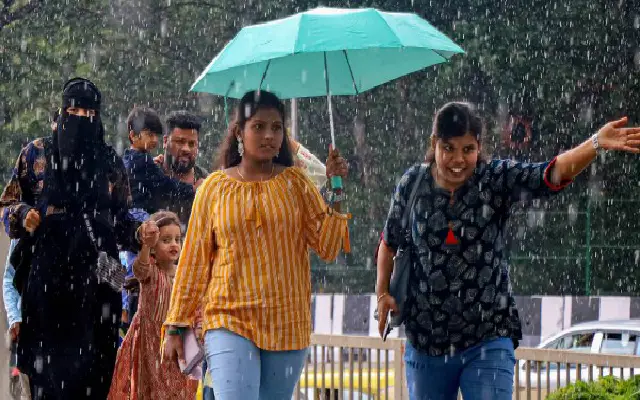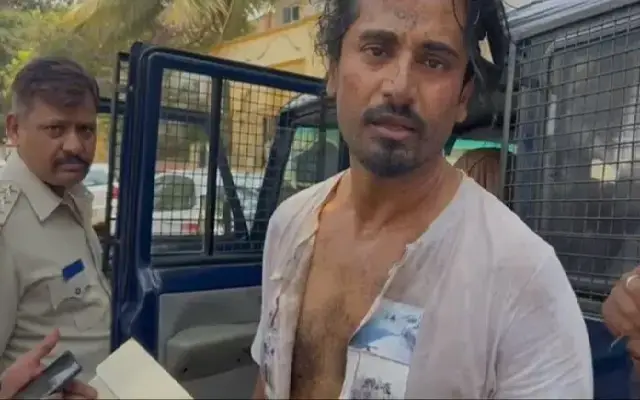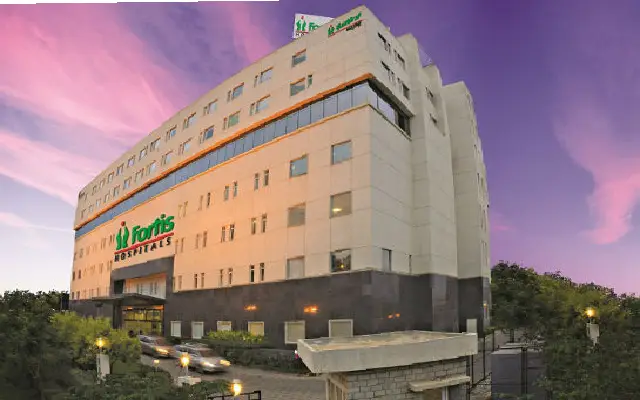Primary Immune Deficiency (PID) diseases are inherited disorders of the immune system that predispose individuals to recurrent infections, some of them life threatening. “Children, irrespective of caste, creed or status in society, will become victims of Primary Immune Deficiency diseases. Diagnosing early such children will help to make them normal. Lack of awareness about this disease is the main reason for the delay in diagnosing,’’ said Dr SagarBhattad, Consultant Paediatric Rheumatologist & Immunologist, Aster CMI Hospital. Together with Aster CMI Hospital, he plans to create awareness on PID diseases on the occasion of World Immunology Day on April 29 by creating an ecosystem of collaboration among science, trained personnel and advanced diagnostics to provide the affected children a lifeline of hope and care. Karnataka Today’s YM Reddy caught up with him and quizzed him on this till now little known disease that drastically affects children in our society.
Excerpts
Many are not aware of immune deficiency. Can you explain in layman’s terms, what it is?
The Almighty has provided all living beings including humans with an efficient immune system that protects us from infections. The orchestra of the immune system is made up of players who defend the human body against pathogens like bacteria, virus, protozoans and many more. Unfortunately, some children are born with a defect in the immune system. One of the players in the immune system is missing that makes these children prone to recurrent infections. The group of diseases in which children are prone to recurrent infections/severe and unusual infections due to a defect in the immune system are called primary immune deficiency diseases.
I agree with you that laymen are not aware of these diseases. The sad part is that many doctors are also unaware about these diseases. Hence there is an urgent need to increase awareness about these diseases amongst public and the medical community.
What are the reasons for immune deficiency? Does it affect children from poor families?
Immune deficiency diseases are genetic diseases. These diseases occur because of a defect in the genes involved in the proper functioning of immune system. Many of us must have read about the white blood cells that protect us from bacteria and other pathogens. In some of the immune deficiencies, these white blood cells are either reduced in number or do not function adequately. Immune deficiencies affect children across all castes, creeds and socioeconomic status. They affect children from poor as commonly as they affect children from the rich families. As can be easily understood, the poor find it very difficult to get proper tests and treatment. The result is a great deal of suffering and financial losses.
What are the symptoms of immune deficiency? How is it diagnosed?
The symptoms of immune deficiency can be as common as a skin rash. Children with immune deficiency have repeated episodes of pneumonia. Some have repeated episodes of loose motions. Many of these children do not gain height and weight as per the age norms. Some of them have blood in stools, while others have discharging ears. Some families would have lost several kids before a proper diagnosis is made in a given child!
I suggest all of us must read the warning signs for immune deficiency and if these signs are present, one must seek consultation from an immunologist. Diagnosis is possible by performing a few laboratory tests, which are now readily available at Bengaluru.
Are sufficient facilities available to diagnose immune deficiency in Bengaluru and other major cities in Karnataka?
Lack of availability of laboratory facilities has been a challenge in the diagnosis of immune deficiency. Previously, most of these patients would either go to Chandigarh or Mumbai for testing. Now, I have been able to establish most of the tests required for diagnosis of these diseases at Bengaluru. Genetic tests are now readily available in Bengaluru. Other cities in Karnataka do not have laboratories that perform these tests. I am now travelling to North Karnataka (Bijapur/Belagavi) and hope to establish laboratory facilities in these places.
Is there a right time to have the right treatment for children with immune deficiency?
Right treatment can be offered only when diagnosis is established in time. In an ideal world, one would like to screen new-borns for immune deficiency at birth by performing blood tests. But this is not feasible at present in resource-constrained settings.
Treatment depends on the type of the problem in immunity. In some children, there are no immunoglobulins in the body. Immunoglobulins are proteins that protect us from infections. In such children, we would give immunoglobulin injections every month. This would replace the missing protein and protect such children from infections. These injections must be given for life! The cost is prohibitive.
There are other immune deficiencies which are more critical where the treatment is bone marrow transplant. If transplants are done within first few months of life, the outcome is good. The cost involved in the transplant procedures remains a challenge for many poor families. We raise funds for such children and arrange for their transplants.
How many children are suffering from immune deficiency in Bengaluru, Karnataka and across the country? Has any NGO or government conducted a survey to know the actual number of children with immune deficiency?
As per studies conducted in United States, immune deficiencies are seen 1 in every 2000 individuals. If this estimate is extrapolated, the city of Bengaluru alone would have around 5000 children with immune deficiencies! However, the actual number diagnosed is less than 50 children. Around 15 children are enrolled in a patient welfare society.
In the last 1 month (after I joined Aster CMI), I have diagnosed 4 new children with immune defects. So a large proportion of these children remain undiagnosed. These children are repeatedly hospitalized and receive all kinds of antibiotics. The need of the day is to increase awareness regarding these conditions amongst doctors and public.
Centres at Chandigarh and Mumbai have facilities for testing such patients. The centre at PGI, Chandigarh has more than 350 children registered with immune deficiencies. These children belong to different parts of the country. Many of them belong to the state of Karnataka. Previously, doctors would refer such patients to Chandigarh. I am fortunate to have received extensive training at Chandigarh. Now, these patients are being diagnosed and treated at Bangalore.
Are facilities available in the country to diagnose and treat children with immune deficiency?
Laboratory facilities for diagnosis of immune deficiencies are available at Chandigarh and Mumbai. Now I have been able to establish all the laboratory facilities at Bangalore. Genetic tests are readily available at Bangalore. Treatment – immunoglobulin injections are available in most of the cities for treatment of these children. Facilities for stem cell transplant have improved in the past 5 years and now children can undergo transplants at Bangalore.
What are the facilities available at Aster CMI Hospital to treat children with immune deficiency?
The most important challenge in the diagnosis and management of children with immune deficiencies is the availability of a trained immunologist. At Aster CMI, we now have a trained immunologist. Majority of the tests related to immunology can be performed. Children regularly receive IVIg injections. Medicines are provided at subsidized prices for such children. Free consultations will be provided for the month of May 2017, to help the needy.
The treatment seems to be costly. What’s your take?
Children with immune deficiency require monthly injections of immunoglobulin (IVIG) for life. The cost of this medicine depends on the weight of the child. On an average, the cost would be Rs.20,000 per month for a 5-year-old child, while it is around 50,000/month for 20 year old individual. If these injections are provided, these children would grow and become productive citizens of our country. However, majority of the families cannot afford this treatment. Children thus receive inadequate treatment or no treatment. Such children die in their teens and it is painful to see children and families suffer despite availability of an effective medicine. The PIDPWS (patient welfare society) has requested state government to support treatment of these children. I am hopeful that government officials would understand the situation of these poor families and provide treatment. Until now, many philanthropists and few NGOs have supported treatment of these children.
Is Aster CMI Hospital accessible for children from economically poor families?
Definitely yes. Heart surgeries in children and adults are conducted under Yeshaswini schemes. Children’s Liver transplants are performed by raising funds by dedicated group of doctors through Intergrated Liver team, AsterDM Foundation and crowd funding platforms. Illness does not distinguish between economic strata. That’s why innovations in Health care accessibility, affordability and delivery is need of the hour. Aster DM foundation is raising funds as part of its ASTER@30 to commemorate 30 years of its inception to create a bridge fund for the poor families so that they can access medical care for complex medical and surgical problems. Treatment for children with immune deficiency and registered with the Parents support group will be provided at subsidized rates. With time and a bigger corpus, we should be able to cater to many children.
What is the role of corporate companies and government to provide treatment for children with immune deficiency?
Using the platform and reach of corporates, we will generate awareness among public, medical fraternity and pharmaceutical industry about the spectrum of immunodeficiency issues in children.
Partnering with Hospitals, doctors and parent support groups, we can share the economic burden of the families. With time and persistent efforts we will be able to create an eco system where current medical science is accessible to all needy children without worrying about economic boundaries.
The Punjab government has started providing regular immunoglobulin injections free of cost to children with immune deficiency. The government of Karnataka has promised a fixed amount to support treatment of these children in the budget, however, no money has yet been released. I strongly appeal to the state government to take this matter with utmost seriousness. We are dealing with lives of young children and I request the government to kindly provide treatment support to these children.


















